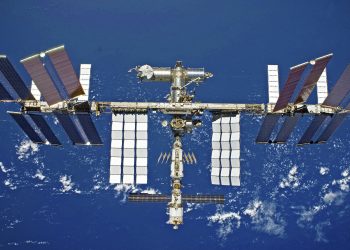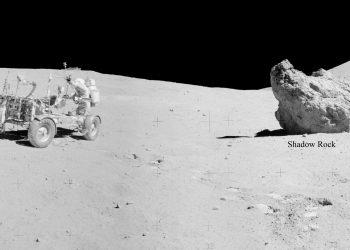The American company Masten Space Systems will develop a lunar navigation system based on surface radio beacons. A probe in lunar orbit will drop beacons to the surface that will be adapted for a hard landing and will be able to provide positioning for other satellites and spacecraft in lunar orbit, without the use of terrestrial navigation systems.
The first soft landing on the Moon took place more than half a century ago and, it would seem, the landing technology should not be very difficult after such a time, but in fact, it is still the most complicated process, which is proved by the unsuccessful landings of the Israeli probe “Beresheet” and the Indian “Chandrayaan” in 2019.
One of the main technical difficulties associated with landing on the moon is accurate positioning. This problem has become especially important in recent years, when countries and companies, including Russia, began to plan the creation of lunar bases in which the modules will be located tens of meters from each other.
A lunar navigation system and why it is necessary
1. On Earth, vehicles, such as the first stage of the Falcon 9, determine their location using signals from satellite navigation systems, but there are no such systems on the Moon yet.
2. Space agencies and private companies offer and are already beginning to test different approaches to lunar navigation. ESA and NASA suggest that with the help of highly sensitive antennas and signal filtering, spacecraft in lunar orbit will be able to receive signals from all the same terrestrial satellite navigation systems.
3. NASA also plans several CubeSat launches before the end of 2021, which, among other things, will test the determination of the location of signals from the Lunar Reconnaissance Orbiter satellite.
4. Masten Space Systems proposed using a different method, which should allow the vehicles to determine their coordinates relative to the moon.
5. The company offers to literally scatter navigational beacons on the lunar surface: engineers are developing shock-resistant electronics and especially housings for this, with the support of colleagues from Leidos.
6. So far Masten has revealed few technical details of the lunar navigation system’s operation but notes that the system will consist of surface PNT beacons (which allow determining location and time) and will be similar in function to GPS.
7. Apparently, the beacons will transmit the exact time and their location, and the devices will calculate their location by comparing data from different devices.
8. The company notes that it won a contract for the development and implementation of the lunar navigation system under the AFWERX program of the US Air Force. The system will be launched in 2023.
9. It is known that Masten plans to launch an XL-1 lander to the Moon in 2023, so it is likely that it will be tested as part of this mission.
10. The lunar navigation system is not the company’s first unusual lunar project. Previously, it already proposed creating lunar landing sites right during landing, modifying the gases of a jet engine, and also extracting water from the lunar soil with a jet engine.
Join the discussion and participate in awesome giveaways in our mobile Telegram group. Join Curiosmos on Telegram Today. t.me/Curiosmos
Sources:
• Alamalhodaei, A. (2021, July 13). Masten Space Systems to develop a GPS-like network for the moon. TechCrunch.
• Masten Space Systems. (2021, July 13). Masten Awarded Contract to Develop Positioning and Navigation Network for the Moon.
• NewsBeezer. (2021, July 13). Masten receives order to develop a positioning and navigation network for the moon.










